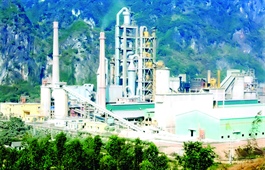Plantations dreaming of FSC status for rubber products
Plantations dreaming of FSC status for rubber products
Vietnam’s rubber industry is struggling to meet the criteria set by the Forest Stewardship Council (FSC), especially those related to the requirement of having at least 10 per cent of a conservation area.
Nguyen Vinh Phuong, the owner of a 150-hectare rubber plantation area in the south-eastern province of Tay Ninh has recently spent more time studying the process of obtaining the FSC certification. Although he is interested in cultivating sustainable rubber, he remains hesitant to implement this process.
Phuong pointed out that the rule of a 10-per-cent conservation area seems to be an infeasible requirement for small operators of plantation areas. The rule would mean that Phuong would lose $1,500 over 10 days of rubber tapping if he saved 10 per cent of his 150-ha plantation area for conservation.
Besides state-owned companies like Tan Bien Rubber and Tay Ninh Rubber, there are 12 private firms competing to source rubber. Phuong was certain that he would not lose VND105 million ($4,520) per month during the tough market caused by rising production expenses, the shortage of rubber tappers and the intensifying competition in prices.
Lien Anh Rubber Co., Ltd. in Tay Ninh missed the chance to obtain FSC certification given the 10 per cent conservation area requirement. Phan Do Trong Nhan, the company’s purchasing manager, said, “We have so far completed eight out of 10 principles set by FSC. However, we face challenges in conserving 10 per cent of rubber space for conservation.”
“Many smallholders do not agree to fulfil this requirement,” Nhan said. “It is difficult to talk to smallholders to meet this requirement although Lien Anh has offered supporting policies as well as rubber care and exploitation techniques.”
Foreign buyers from the United States and Europe are willing to pay a higher price for FSC-certified rubber but this is a long-term matter, added Nhan. “Currently, the purchasing price of rubber between companies with FSC-PM and without FSC-PM is almost equal because people know too little about FSC.”
Lien Anh is exporting 60 per cent of rubber to the Chinese market, 20 per cent to the EU and US markets and the rest for domestic consumption. “Many Chinese buyers offer a new price as soon as our rubber is certified with FSC,” Nhan said. “At this time, many Chinese buyers still buy uncertified rubber, because its government has not tightened its grip on sustainability regulations.”
According to Nhan, Lien Anh has considered sustainable development but the initial investment for FSC certification is very large, accounting for about 35 per cent of the expenses. In the near future, Lien Anh will try to comply with the conservation area regulation on an area of 123ha. He calls it the flexibility of the company to achieve FSC certification in August this year. However, the company still finds it difficult to implement this regulation in its plan to develop 7,000ha in 2027.
Due to increasing pressure, some Vietnamese firms have invested in sustainable development to improve environmental and social conditions in rubber plantation areas. Bui Quang Ninh, CEO of Daklak Rubber JSC (Dakruco), expected that the company would soon acquire FSC certification to sell rubber at a higher price.
Dakruco faces three difficulties to meet FSC criteria including initial investment capital, the conservation area requirement and the possibility of changing the living habits of rubber growers. Dakruco is managing 11,300ha of rubber land, including 1,670ha in Cambodia.
There is a small number of FSC-certified rubber plantation areas in Vietnam, but obtaining the certification is not an easy feat. Vietnam Rubber Group (VRG) perfectly exemplifies this challenge. In 2017, after 18 months of trials, VRG has achieved FSC for two rubber plantations in Vietnam with a total area of 11,700ha. This was quite small compared to its total rubber space of 550,000ha at that time.
Besides FSC, there are many independent non-governmental organisations overseeing the activities of its members. As a rule, FSC certification is valid for five years. During this time, FSC will make four visits to certified holders to assess their compliance with the requirements set forth by this organisation. Issued certificates will be suspended or revoked for unsatisfactory cases.























